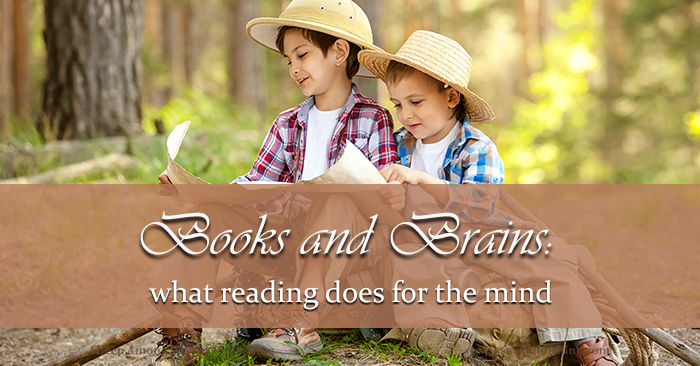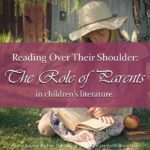Books and Brains: What Reading Does for the Mind
 Books are good for you, right? I mean, if they do nothing else, they keep you off a computer screen for as long as you’re reading them.
Books are good for you, right? I mean, if they do nothing else, they keep you off a computer screen for as long as you’re reading them.
Unless you’re reading online. As you presumably are right now.
Never mind. Books are still good for you.
But just how good? Good enough that they really matter? Because in the middle of a life that’s already bursting at the seams (what a horrible simile, by the way!) “good” isn’t always a strong enough case.
Does reading actually do enough to be worth the fight?
I always had a kind of gut feeling about this one. But it turns out there’s more than instinct to back it up.
Because according to scientific findings, reading is beneficial enough to be worth the effort!
In honour of Alzheimer’s and Brain Awareness Month (which June just happens to be) let’s take a look at what reading does for the mind.
What Reading Does for the Mind: Childhood Development
According to Reach Out and Read there is a definite connection between books and childhood development. Intriguingly, this connection exists even before the child can read for themselves.
Children whose parents or caregivers read aloud to them exhibit improved development in:
- Language
- Listening skills
- Emotional connections
- And, you guessed it, ongoing love of reading, too!
Immersing children in books provides a cognitive foundation that will impact them for the rest of their lives.
What Reading Does for the Mind: Adult Mental Health
Reading does more than develop growing brains. National Alliance on Mental Illness (California) and Step Up for Mental Health are just two sources that highlight a substantial connection between reading and mental health. The mental health benefits of reading include:
- Reduced stress (up to 68% according to one study)
- Improved empathy
- Decreased sense of isolation
- Improved Sleep Quality
- Improved General Mood
It doesn’t take a big time investment to see results. (More on that later!) And the results are in intensely practical areas that the vast majority of adults will acknowledge they value.
What Reading Does for the Mind: Senior Cognitive Function
And finally, reading discourages deterioration in your brain. According to a study sited by Read Simple, brain-stimulating activities such as reading can substantially reduce the likelihood of developing Alzheimer’s.
In fact, they suggest that readers, chess players, and puzzle-workers may be as much as 2.5 times less likely to develop Alzheimer’s than counterparts who do not participate in similar brain-engaging activities.
The benefits start accruing during middle life, too. So don’t put off the reading for retirement days.
How Much Reading Do You Need to Get Benefits?
Because we all know, if we’re talking about two or three hours a day—
Okay, back that up. If we’re talking about one hour a day—
Actually, when life gets busy, even half-an-hour a day is going to be a stretch.
But here’s the amazing news.
You don’t need hours.
You only need minutes.
Honestly.
According to a 2009 study from the University of Sussex as little as 6 minutes a day produces impressively measurable results. Can you see yourself squeezing 6 minutes into your overfull day?
Most of us spend more than that scrolling social media before we turn our phone off at night.
Ouch.
But I was being honest. I did say “us.”
Read: It’s Worth It!
Really worth it.
Worth it for your kids. Worth it for your mental health. Worth it for your future.
Books are great! And they do incredible things for your brain.
We’ve taken a look at a lot of quantitative facts in this post, but I’m confident that reading has a positive impact in more personal, less measurable ways, too. If one of them comes to mind, I’d love to hear from you in the comments section below!
Struggling with kids who don’t like reading? See our previous post:
You might also enjoy:

Does age-appropriate reading material really matter? Is reading above your grade level a good thing? Or a bad thing? Or a neutral one?

Do you ever wonder at the end of the year, how people’s New Year’s resolutions have gone? This post revisits the topic of my reading goals, after a year of experiment.

Do parents have a role in children’s literature? After all, kids’ books are for kids! Or could outstanding children’s literature be a three-way process, where the author—the child—and the parent all have a part to play?


What a good post! I haven’t been reading a lot lately (besides Beta reading), so maybe I’ll try to focus on reading at least a little each day in July. Thank you, Courtenay!!
You’re welcome! So glad you liked it!